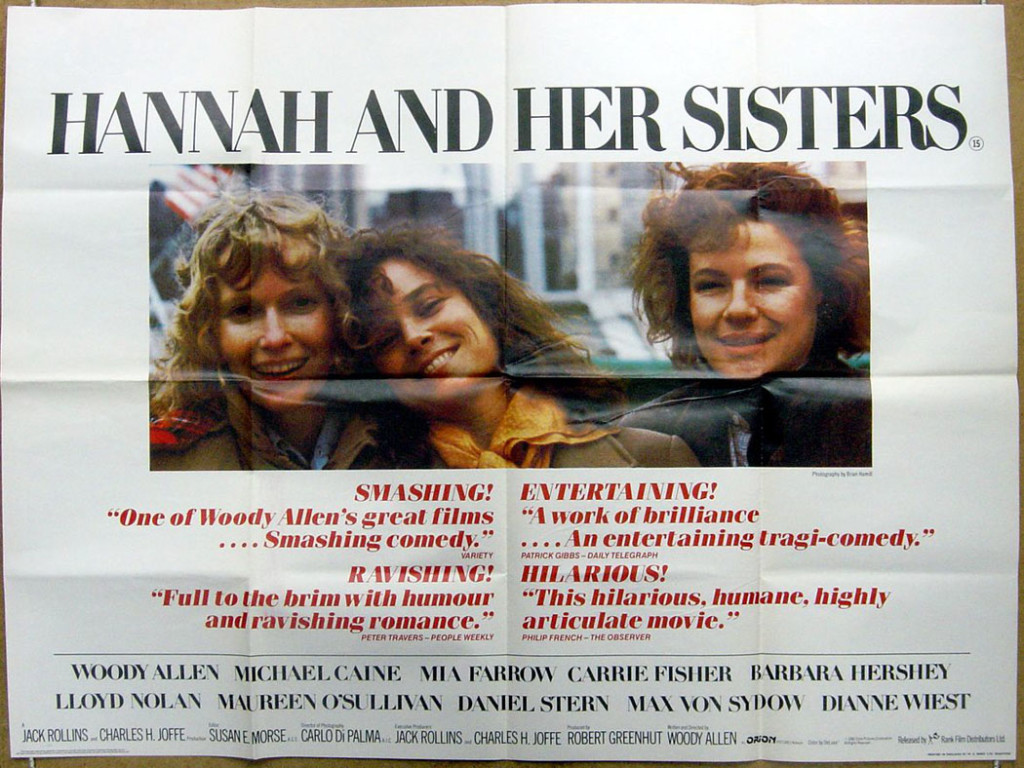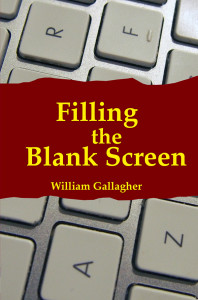This is going to read like a long and unqualified hymn of praise to a particular TV show but actually, I think it’s about confidence and verve and talent. But you have a point about it being long: grab some tea and a couple of biscuits, would you?
Follow. I have recently binged through the first three seasons of Community (Amazon UK, Amazon US). It’s a US sitcom set in a college, and my wife, Angela, has not binged through it at all. Most episodes, perhaps 70% of them, have left me agog enough that I’ve gone to her insisting that she would not believe what the show had just done.
For instance, she came back one evening and I was blinking at the screen. I told her they’d just done an amazing episode with paintball. Uh-huh, she didn’t say but she could’ve done. Not long afterwards, I was telling her that they’ve done an entire episode with stop-motion animation. They did a perfect pastiche of Law & Order. One episode is almost completely done as a 1990s 8-bit computer game with the characters drawn as Super Mario-like graphic sprites. There is an entire episode produced in the painstakingly precise style of a National Geographic or History Channel documentary but what it’s documenting is a pillow fight. Another apparently straight episode splits off into six alternative timelines with each being worse than the one before.
That’s nice, she also didn’t say but could’ve done.
Community isn’t her thing but what I want to focus on here is me and how I would tell her about it. How poorly I would tell her.
You can so easily praise Community for doing these stunts that it comes across, I think, as a comedy that does stunts. Let’s do a spaghetti western this week. Whoop-de-doo.
Plenty of series do pastiche episodes. I’m trying to remember specific examples but I just have this general shrug: I do remember The Young Ones doing University Challenge supremely well, and Press Gang did a kind of Doctor Who that was quite touching, but otherwise, shrug. It feels like a cheap idea, it feels like a stunt. Make this episode be a western and that alone will be hilarious.
But.
When Community did that paintball episode, I was beside myself with its audacity and true imagination. That episode turned this series from a funny, self-aware comedy about a group of students at an adult education college into – well, I don’t know. Within its 21 minute running time, the entire show changed from one of type of sitcom into something like a feature-film epic. Every character under extreme, just extreme pressure; allegiances formed and betrayed; plots made and failed; friendships won and lost.
Also, there was paintball.
The college becomes a war zone with paintball guns and it is very, very funny but it’s also so very, very serious. You feel like you’re seeing characters in their true colours, and it just happens that those true colours are red, blue, orange, green and yellow paint.
It is riveting and I was just agog.
When I learnt that the show was going to do it again in the next season, I was actually excited. It was an effort to not skip straight to that.
I’ve been thinking a lot about why this worked and why a pastiche could be so much more than an empty parody. I’m afraid I think that it’s down to the talent, the verve and the imagination of the makers. Damn them. How can I steal talent, verve and imagination? Bastards.
It’s not that the show is perfect. This is unfair of me but a DVD extra put me off a little: the first one I watched had series creator Dan Harmon narrating a series of clips which had fart noises added. There’s puerile and there’s seriously? you bothered to make that?
I saw that quite early on in my watching, before I was hooked and in fact before the first paintball episode which truly is a series-changing, series-defining moment. So it did put me off and that was unfair because I think there’s really only one puerile joke in the actual episodes. There’s this monkey, right, and it’s a pretty good addition to the show: it is the catalyst for an episode set entirely in the main study room set. But its name is “Annie’s Boobs”.
That just doesn’t fit, for me. Doesn’t seem to fit Troy (Donald Glover), the character who named the monkey, and the start-stop reactions from Annie (Alison Brie) seem like cutaways instead of permanently, inherently part of her character.
Every show takes time to find its feet in its first few episodes and I’d put Annie’s Boobs down to this one working out Troy’s character except that the name persists.
It really interests me how the series visibly changed and developed its characters. Not in the sense of them growing and changing over time, though they do and though they should, but in the sense of the writers fixing what doesn’t quite work. Troy and Annie, for instance: Annie’s defining characteristic at the start is that she’s in love with Troy and he doesn’t realise. That’s going to be a series-lasting kind of thing, a series-long will they/won’t they, except that it isn’t. That’s cut off at the knees quite early on and it’s to the benefit of both characters.
One character that suffers from changes and fixing, though, is Britta (GIllian Jacobs).
At the very start, ie episode one, Britta is the reason the show exists. Jeff Winger (Joel McHale) is a disbarred lawyer having to get some college credits and really only being interested in “the hot blonde from Spanish class”. He creates a study group just for the two of them and it is so very much entirely to get her into bed that he is even lying about knowing any Spanish at all. It is therefore disastrous for him when other people come to the first ‘group’ meeting and, again, this is the start of a series-long will he/why would she kind of tale. They are the sexy not-yet-couple, they are the Sam and Diane of the show. (Which the series actually directly states. I mean directly: it names these Cheers characters in dialogue.)
Except this sexual tension is also dealt with.
After the first episode and certainly after the first season, I think Britta is sidelined and Annie is brought to the fore in her place. I’m uncomfortable with this: Annie becomes the centre of a lot of sexual attention but she’s meant to be 19 and substantially younger than anyone but Troy. Actor Alison Brie was about 26 when the show started, which helps me yet I still squirm a bit.
Whereas Britta loses this role as the centre of sexual attention and that should be good. For a series that specifically knows it is a sitcom and deliberately plays off sitcom tropes, she begins as very much the standard blonde sexy one and it’s good that there came to be more to her.
But Community is a comedy about this study group with seven people in it. Most of the time, it feels like a comedy about this study group with five people in it.
Pierce (Chevy Chase) is the member most overtly and deliberately left out:
JEFF: Annie, let’s not rehash this. The guy’s been a jerk all year.
ANNIE: He’s a jerk because we exclude him.
JEFF: We exclude him because he’s a jerk.
But watch any story from about halfway through the first season and you find that it’s typically about something that involves five of the group – sometimes it’s two stories and the group is divided – plus Britta doing something else. She orbits the group. In the A-B-C kind of storytelling ethos, she usually has the C story.
I can’t criticise the show for it: what this series does with its 21-minute running time is truly nothing short of miraculous. I honestly don’t think there is another show that goes as far and as imaginatively. You get taken to places that are beyond ridiculous and the steps that get you there are not convincing, they are not sensible, yet in the moment you completely believe that they are. When this group steps out of a space capsule – honestly, from a college class to a space re-entry in 21 minutes – you are actually cheering for them.
You triumphantly tell Angela that they made it safely back to Earth.
Uh-huh.
So if they can’t get every character in every story, I can’t criticise. I can lament, though.
I find the show inspiring, actually. I didn’t watch it to be a lesson in writing and I look at its imagination with only yearning, but it makes an astonishing job seem effortless and part of me wants to celebrate that.
Unfortunately, part of me wants to hang on to it and I can’t.
For I lied to you. I haven’t just seen the first three seasons, I’ve also seen half of the opening episode from season four.
It’s gone.
This verve and talent and imagination is gone.
Now, I knew as a media writer that Community had famously had a problem in its fourth season: creator Dan Harmon was fired as showrunner. And I know as a media writer that he got hired back for the fifth season. That’s why I’m going to make it through the fourth, just so I can see whether the fifth comes back. (It’s just been announced that there will be a sixth.)
I see your point that it is unfair of me to judge an entire season on the first ten minutes of its opening episode but I raise you that I only watched those first ten. Where previous episodes scooped me up and carried me at a thousand miles an hour, this one dropped me.
The clue is not in the writing or the story or the plot or the characters, though, it’s in the acting.
It’s the same cast for the fourth season and I have thought that the whole set of them is exquisitely good. But in this opener, the actors are acting.
You’ve seen this. Actors who don’t have good material to work from will go into a kind of mugging. They put their backs into it, they put their worth into it and they make the best they can of the job. I don’t criticise them for this, if I were an actor I hope that I would be good enough and care enough to do it too. But it’s visible. And what I see is that the material isn’t there.
As actors, they are hoping to pull something off with their performance. As a writer, I have a habit of believing that everything is on the written page. We’re all wrong. Shows fly when script and cast are at their best and are at each other’s side.
I saw and very much liked the pilot episode of Community many years ago. The pilot that now seems so ordinary compared to the delicious insanity of the series. I didn’t watch any more until a couple of months ago when writer Alex Townley loaned me the DVDs.
Naturally I’ve thanked her enthusiastically but she’s told me she feels a bit guilty. That she’s led me to the disappointment of the fourth season. And she described this fourth run as being “like fan fiction”. Ouch. It’s the perfect description: Community 4 feels like it’s written by fans who know all the rules of the show but didn’t create it, aren’t moving it forward, aren’t reaching deeper.
You need verve and talent to dig deeper and I think you need confidence too. Now, where exactly can I get me some of those?
Community is on DVD here on Amazon UK and there on Amazon US. I hope you love it as much as I do.

